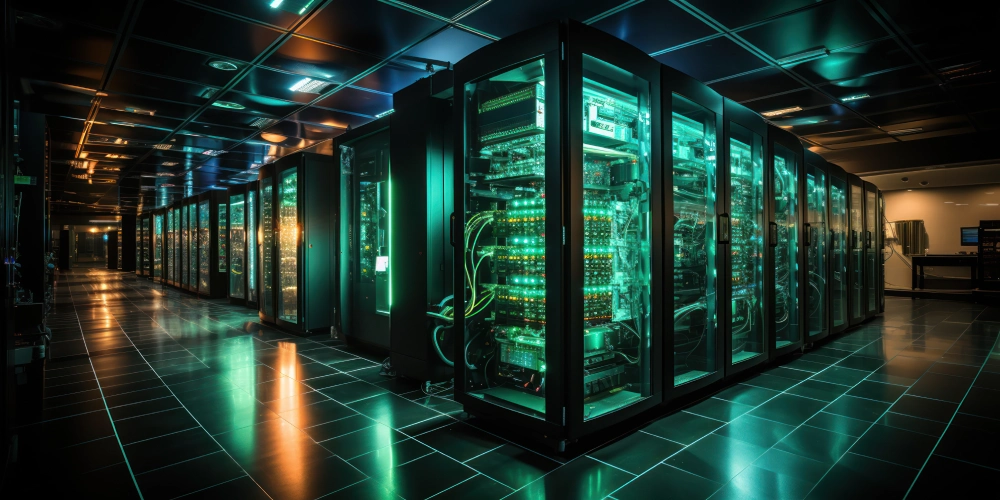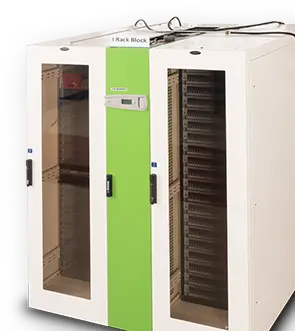Maximizing Data Center Efficiency with Air Conditioned Server Rack
Introduction:
In the fast-paced world of technology, data centers play a crucial role in powering various digital services and applications. With the ever-increasing demand for computing power and storage capacity, data centers continually seek innovative solutions to enhance efficiency and performance. One such solution that is gaining traction is the implementation of air-conditioned server racks. This article will delve into the significance of air conditioned server rack in improving data center efficiency.
Understanding the Importance of Data Center Efficiency Efficiency is paramount in data centers as they consume substantial amounts of energy to operate and maintain optimal conditions for the housed servers and networking equipment. Inefficient data centers not only incur higher operational costs but also contribute to environmental concerns due to excessive energy consumption. Therefore, maximizing efficiency is not merely a matter of cost-effectiveness but also an imperative for sustainability.
Challenges in Data Center Cooling Cooling is a critical aspect of data center operations, as excessive heat can damage sensitive equipment and lead to system failures. Traditional cooling methods, such as raised floor air conditioning and perimeter cooling units, have been widely used but are often inefficient and prone to hotspots. As data center densities increase and server power consumption rises, conventional cooling solutions struggle to keep pace with escalating demands, leading to compromised performance and reliability.
Air conditioned server rack offer a targeted cooling solution that addresses the limitations of traditional cooling methods. These racks are equipped with integrated cooling systems that deliver precise temperature control directly to the servers, eliminating the inefficiencies associated with room-level cooling. By isolating cooling at the rack level, air conditioned server racks optimize airflow management and thermal efficiency, resulting in improved performance and reliability of the housed equipment.
Key Benefits of Air Conditioned Server Rack
Enhanced Cooling Efficiency: Air conditioned server rack provide localized cooling, ensuring that servers receive the appropriate amount of cooling precisely where it is needed. This targeted approach minimizes energy wastage associated with overcooling and reduces the risk of hotspots, thereby optimizing cooling efficiency.
Improved Thermal Management: Traditional cooling systems often struggle to maintain uniform temperatures across the data center environment, leading to uneven cooling distribution and thermal imbalances. Air conditioned server racks mitigate this issue by delivering consistent cooling directly to the servers, promoting uniform temperatures and better thermal management.
Increased Equipment Reliability:By maintaining optimal operating temperatures, air conditioned server racks help prolong the lifespan of critical equipment and reduce the risk of hardware failures due to overheating. This enhances equipment reliability and minimizes downtime, thereby improving overall data center performance and operational resilience.
Energy Efficiency:Targeted cooling offered by air conditioned server racks results in lower energy consumption compared to conventional cooling methods. By reducing the need for overcooling and minimizing airflow obstructions, these racks help data centers achieve significant energy savings and lower carbon footprints.
Scalability and Flexibility: Air conditioned server racks are highly scalable and adaptable to evolving data center requirements. Whether deploying new servers or reconfiguring existing infrastructure, these racks offer flexibility in cooling capacity and configuration, allowing data centers to optimize resources efficiently.
Expanding on Air Conditioned Server Racks: Future Trends and Innovations
As technology evolves and data center requirements become increasingly complex, the demand for more advanced cooling solutions continues to grow. While air conditioned server racks have proven to be effective in enhancing data center efficiency, ongoing research and development efforts are paving the way for future innovations in cooling technology.
Liquid Cooling Integration: One emerging trend in data center cooling is integrating liquid cooling systems within server racks. Liquid cooling offers superior thermal conductivity compared to air, allowing for more efficient heat dissipation and temperature regulation. By circulating coolant directly through server components, liquid-cooled racks can achieve higher cooling capacities and greater energy efficiency.
Artificial Intelligence (AI) Optimization: AI-powered cooling management systems are poised to revolutionize data center operations by dynamically adjusting cooling parameters based on real-time data analytics. These intelligent systems can optimize airflow, temperature, and humidity levels to maximize cooling efficiency while minimizing energy consumption. By leveraging AI algorithms, data centers can achieve unprecedented levels of efficiency and performance optimization.
Passive Cooling Solutions: Passive cooling techniques, such as advanced heat exchangers and phase-change materials, offer promising alternatives to traditional active cooling methods. By harnessing natural convection and thermal storage principles, passive cooling solutions can reduce reliance on mechanical cooling systems and further enhance energy efficiency. Additionally, passive cooling technologies can significantly reduce operational costs and environmental impact, making them attractive options for sustainable data center design.
Modular and Portable Designs: Modular air conditioned server racks are gaining popularity for their flexibility and scalability. These modular units can be easily deployed and reconfigured to accommodate changing infrastructure requirements, making them ideal for dynamic data center environments. Furthermore, portable air conditioned racks offer the flexibility to rapidly expand cooling capacity or establish temporary data center facilities in remote locations or during emergencies.
Environmental Sustainability: As environmental concerns become increasingly prominent, data centers are under pressure to adopt sustainable cooling practices. Air conditioned server racks play a crucial role in promoting environmental sustainability by reducing energy consumption and carbon emissions. By embracing renewable energy sources and implementing energy-efficient cooling technologies, data centers can minimize their ecological footprint and contribute to a greener future.
Conclusion:
Air conditioned server racks offer a compelling solution for data centers seeking to enhance efficiency, reliability, and sustainability. By providing targeted cooling directly to the servers, these racks optimize thermal management, improve equipment reliability, and reduce energy consumption. As data center densities continue to rise and cooling demands escalate, air conditioned server racks are poised to play a pivotal role in shaping the future of data center infrastructure.
Incorporating air conditioned server rack into data center design and optimization strategies can unlock significant benefits in terms of performance, reliability, and cost-effectiveness. As the digital landscape evolves, embracing innovative cooling solutions will be essential for data centers to meet the demands of modern computing while minimizing environmental impact.

